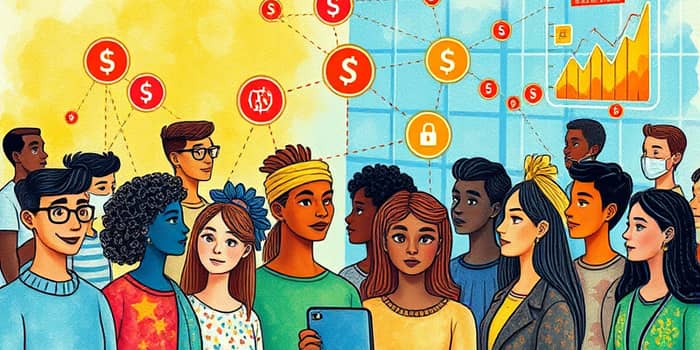
The world is witnessing a profound shift in how money moves, how investments are made, and how everyday people access the financial tools that were once reserved for a select few. Through rapid technological advances and bold policy changes, finance is being reimagined as a democratic resource. This movement is about more than wallets and accounts—it’s about empowering communities, fostering resilience, and unlocking human potential on a global scale.
By breaking down barriers and championing transparency, we can envision a future where anyone, anywhere can make informed financial choices and pursue life-changing opportunities.
Over the last decade, smartphones and internet access have become catalysts for what many call the financial inclusion revolution. Fintech platforms now enable users to pay bills, send remittances, and manage savings from the palm of their hand. This shift is not just convenience—it’s a lifeline for those in remote regions who previously had no bank branch within reach.
Emerging technologies such as blockchain and digital ledgers are paving the way for secure transactions without intermediaries. Cryptoassets, mobile wallets, and biometric identification have the potential to reduce fraud, cut costs, and extend services to previously unbanked populations.
Crowdfunding has democratized capital by linking innovators and entrepreneurs directly with supporters. Platforms built for donations, rewards, peer-to-peer lending, and equity crowdfunding are redefining how ventures get funded. Small business owners and creatives can now raise capital without walking into a traditional bank.
Equity-based crowdfunding, in particular, offers investment opportunities for everyday people, dismantling historical barriers that favored high-net-worth investors. As a result, startups and small enterprises gain traction, and local economies flourish through grassroots support.
Regulators around the world have responded by modernizing frameworks to balance innovation with consumer protection. In the United States, the JOBS Act and SEC guidelines have streamlined crowdfunding rules, enabling small companies to tap broader networks of investors.
Innovative governance models propose that financial institutions be governed by minipublics chosen through sortition, ensuring that funding decisions reflect community needs. Imagine a community bank overseen by randomly selected citizens debating affordable housing initiatives or green energy projects—this is a glimpse into the future of democratic finance.
Since 2011, global account ownership has skyrocketed from 51% to 79%. In low- and middle-income economies, 75% of adults now hold accounts, driven largely by mobile banking. Formal savings rates have surged from 25% to 40% over the past three years alone.
Yet, 1.3 billion adults remain unbanked, with nearly half of that population in eight key economies. Rural communities, smallholder farmers, and women in remote areas still face steep obstacles. Despite progress, many lack the digital tools or financial literacy to fully participate.
The sector is shifting focus from mere account ownership to achieving resilience, equity, and development goals. Financial health initiatives aim to ensure that individuals can withstand emergencies, build credit, and plan for the future. By integrating climate action, gender inclusion, and social welfare into financial services, institutions work towards truly transformational outcomes.
Government-to-Person (G2P) applications exemplify this vision. Digitized social transfers—such as pension benefits and unemployment allowances—have brought millions into the formal financial system while reducing administrative costs.
Whether you’re a community leader, small business owner, or individual striving for financial security, there are actionable steps you can take today.
By joining forces with neighbors, entrepreneurs, and policymakers, you can help design and implement financial solutions tailored to your region’s unique challenges.
We stand at a crossroads where technology, policy, and community governance converge to redefine finance. The democratization of finance is not a distant promise—it is happening now. But its success depends on collective action.
Embrace innovation, demand transparency, and support initiatives that foster inclusive access. Share knowledge, mentor others, and push for regulatory environments that protect and empower.
Together, we can build a financial ecosystem that serves everyone, unlocks human potential, and paves the way for a brighter, more equitable future.
References





